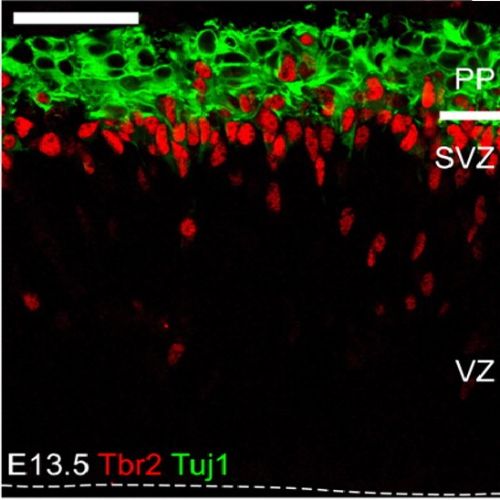Brca1 is required for embryonic development of the mouse cerebral cortex to normal size by preventing apoptosis of early neural progenitors.
The extent of apoptosis of neural progenitors is known to influence the size of the cerebral cortex. Mouse embryos lacking Brca1, the ortholog of the human breast cancer susceptibility gene BRCA1, show apoptosis in the neural tube, but the consequences of this for brain development have not been studied. Here we investigated the role of Brca1 during mouse embryonic cortical development by deleting floxed Brca1 using Emx1-Cre, which leads to conditional gene ablation specifically in the dorsal telencephalon after embryonic day (E) 9.5. The postnatal Brca1-ablated cerebral cortex was substantially reduced in size with regard to both cortical thickness and surface area. Remarkably, although the thickness of the cortical layers (except for the upper-most layer) was decreased, cortical layering as such was essentially unperturbed. High levels of apoptosis were found at E11.5 and E13.5, but dropped to near-control levels by E16.5. The apoptosis at the early stage of neurogenesis occurred in both BrdU pulse-labeled neural progenitors and the neurons derived therefrom. No changes were observed in the mitotic index of apical (neuroepithelial, radial glial) progenitors and basal (intermediate) progenitors, indicating that Brca1 ablation did not affect cell cycle progression. Brca1 ablation did, however, result in the nuclear translocation of p53 in neural progenitors, suggesting that their apoptosis involved activation of the p53 pathway. Our results show that Brca1 is required for the cerebral cortex to develop to normal size by preventing the apoptosis of early cortical progenitors and their immediate progeny.

- Development 2009 Jun 29;136(11):1859-68
- 2009
- Neurobiology
- 19403657
- PubMed
Enabled by:
